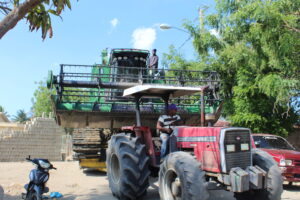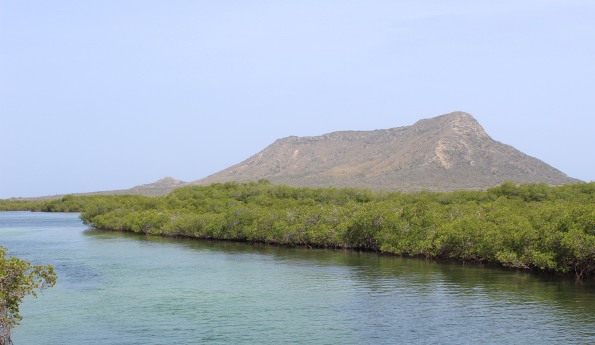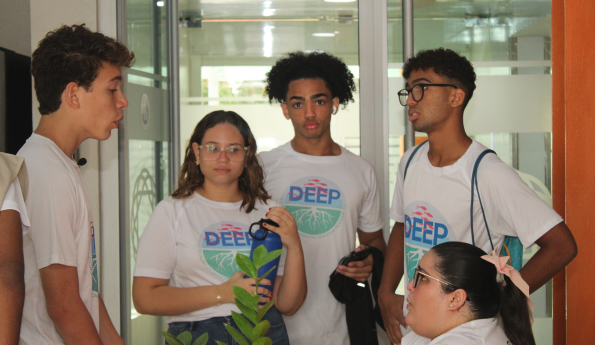In Montecristi, near Mangroves of Estero Balsa National Park in the Dominican Republic, the Integrated Marine Ecosystems Management in Northern Hispaniola (IMEM) program worked with its local partner AgroFrontera and local rice farmers to develop the cultivation of sustainable rice in the buffer zone near the park. This work strengthened the region’s agricultural economy, built economic resilience, and increased household income. IMEM introduced sustainable rice production, identified market opportunities, and found accessible financing options for farmers.
The results from sustainable rice production showed undeniable advantages in six metrics over conventional rice farming systems: cost of production, yield, farmgate price, greenhouse gas emissions, nitrogen fertilizer usage, irrigation management, and pesticide use. Data from eight conventional rice farming systems were collected to contrast sustainable rice practices with as shown below:

A comparison of conventional rice production compared to sustainable rice using data collected throughout the program.
IMEM’s efforts to build a sustainable rice value chain helped farmers overcome the high startup cost of rice farming, which ensured the success growers had throughout the program. For the first harvest year, the program negotiated down the high interest rates for farm loans and secured low interest loans for 52 farmers, totaling $200,000. With the success of the first harvest, the entire amount was repaid. Affordable financing was critical to the success of IMEM and will be critical to similar projects in the region.

IMEM’s work with farmers ensured the adoption of sustainable farming practices, economically benefiting the region’s farmers while reducing the ecological impact of their farms on nearby marine ecosystems. The program attracted interest from the Dominican government, which selected the program under the President’s “Supérate” socioeconomic development initiative. This program will facilitate the integration of marginalized populations into the labor market and lift them out of poverty by providing low-income rice farmer families with production credit. The director of Supérate commented that the widespread adoption of IMEM’s sustainable rice initiative could help thousands of rural families and offer consumers eco-friendly Dominican rice.
Read more about Counterpart’s Integrated Marine Ecosystems Management program here.




